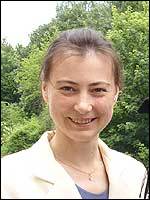Expert opinion: State Committee on Religions was revived secretly

 Lesia KOVALENKO, doctor of law, assistant director of the Institute of Religion and Society of the Ukrainian Catholic University
Lesia KOVALENKO, doctor of law, assistant director of the Institute of Religion and Society of the Ukrainian Catholic University
Regulation 1575 of the Cabinet of Ministers of Ukraine of 8 November 2006, which stipulates “reorganization of the State Committee on Matters of Nationalities and Migration and the State Department on Religious Matters into the new State Committee on Matters of Nationalities and Religions according to paragraph 9-1 of article 116 of the Constitution of Ukraine” undoubtedly deserves the status of the hot news of the last week. Not because another of the revivals of the State Committee on Religious Matters was a surprise: they have talked about this possibility among circles of people more or less initiated in church-state affairs for a long time. Rather, because it happened without any public discussion or knowledge.
In view of the fact that in the structure of the central bodies of state power a state committee comes next after a ministry, whereas a state department is its structural subdivision, the regulation provides for elevating the rank of the body on matters of religions. (The unification of religious matters with national ones provokes many questions, though). What is the aim of this decision, then?
According to the regulation, it is “further improvement of the system of bodies of the executive power.”
Going back to not very ancient history, the Soviet Law on Freedom of Worship and Religious Organizations of 1 October 1990 substantially reformed the Council on Matters of Religions attached to the Council of Ministers of the USSR by depriving it of the functions of control over the observation of law and registration. The corresponding Ukrainian law (effective as of today) reserved to its council both supervisory functions and questions of the realization of state policy in the area of religion. From November 1994 to October 1995, these questions were within the competence of the Ministry on Matters of Nationalities, Migration and Religion. However, under the pressure of public criticism, in January 1996, it was passed to the State [National] Committee on Religious Matters, which existed until 2005 in a somewhat reformed condition. The activity of this body provoked mass criticism and discussions. (One can mention that a deputy’s interpellation as to the legitimacy of the existence of this body was submitted to the Constitutional Court).
The declarations of changes in the area of state-denominational relations were put into effect by reorganization of the State Committee on Religious Matters. In April 2005, the president of Ukraine signed a decree vesting the Ministry of Justice of Ukraine with the functions of the liquidated state committee. A month later, in May, the government issued a regulation on the establishment of the State Department on Religious Matters within the Ministry of Justice of Ukraine. This step was received with guarded optimism, as an analysis of the regulation of the state department allowed one to declare that the only real change was the lowering of the status of this body of state government and less accurate formulation of its capacities. Some religious organizations were even dissatisfied with the decision, as, according to them, the state committee, despite all its deficiencies, played an important role as “the mouthpiece of interests of religious organizations in the government.” In addition, suspicions were raised by a certain lack of transparency of the new body, for the regulations of this structure were approved as late as in August. One should note, however, that, after that, during the short period of its existence, the activity of the state department did not provoke either excessive public criticism (even in the report of the U.S. State Department for this year) or excessive approval. Systematic consultations with the All-Ukrainian Council of Churches and Religious Organizations continued. There was a website.
That is exactly why one cannot help being surprised at the present position of religious organizations, to be more exact, in most cases, tacit consent or even support of reorganization. Can the “burden of freedom” be so heavy and can it be more convenient to remain a potential tool of the state power, even though this tool enjoys privileges?
It is obvious that the process of getting rid of the totalitarian heritage in Ukraine goes slowly and inconsistently, in many respects. State authorities continue to seek religious and moral legitimization of their actions. At the same time, they profess the ideology of paternalism, which is expressed in the invariance of state policy on nearly every aspect of personal life, including the religious aspect. Religious organizations remain “dependent” on the authorities. The authorities cultivate legal positivism with a bias to nihilism, which leads to the establishment of privileges instead of legal conditions for the activity of autonomous and independent organizations, which constitute the foundations of the democratic, legal, political, economic, or spiritual culture of society.
In the discussions, the most important argument in favor of extension of powers and elevation of the status of this state structure was that it should prevent uncoordinated interpretation of the law at the local level. However, it appears that, at first, one must change clearly obsolete legislation, and only then monitor its correct observance. That is exactly why the most surprising thing is that the decision about the restoration of the state committee was made at a time of active development of the new reading of the law “On freedom of worship,” which, according to the experts, is much better than the present one.
One should note that the existence of a separate state authority on matters of religion does not contradict the principles of democratic society, even though practical experience shows that the more democratic a society is, the less powers state authorities have. However, it is obvious that the structure of the system of these authorities directly influences the efficiency of realization of the right to religious freedom. One can assume from one’s experience that the present reorganization at least will not make problems less complicated. One can only hope that the old-new structure will not eliminate conflicts at the price of the limitation of pluralism, and that the division or unification of religious organizations will remain outside its competence.
P.S. One wonders what will happen to migration? If a separate state committee is established for the regulation of this important issue, it will be at least one understandable and logical step for “further improvement of the system of executive power.”









